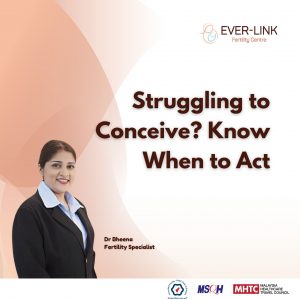
Trying to conceive can be exciting, but when months pass without a positive pregnancy test, frustration and uncertainty can set in. At what point does waiting turn into worrying? When does it make sense to seek professional help? If you’re wondering whether it’s time to see a fertility specialist, here’s how to tell.
Understanding the Timeline
How long should you try on your own before getting medical help? It depends on a few factors:
- Under 35 – Doctors typically recommend seeking help if you’ve been trying for one year without success.
- Over 35 – Since fertility declines more rapidly after 35, you should reach out to a specialist after six months of trying.
- Over 40 – If you’re over 40 and trying to conceive, it’s best to consult a specialist right away, as egg quality decreases significantly at this stage.
Certain health conditions may call for earlier intervention.
Signs You Shouldn’t Wait
While many couples conceive naturally given enough time, others face underlying medical challenges that require expert guidance. If you experience any of the following, consider scheduling an appointment sooner:
- Irregular or missing periods – If your cycle is unpredictable or you skip periods entirely, ovulation may not be happening as it should.
- Painful periods or endometriosis – Severe cramps, pain during intercourse, or a known diagnosis of endometriosis can impact fertility.
- Previous pregnancy losses – If you’ve had multiple miscarriages, it’s worth investigating potential causes.
- Male factor concerns – If your partner has a history of low sperm count or other reproductive health issues, testing might be needed early on.
- Unsuccessful attempts for a long time – If you’ve been tracking ovulation, timing intercourse correctly, and trying consistently with no success, something may need closer evaluation.
What to Expect From a Fertility Specialist
If you decide to take the next step, a fertility specialist often a reproductive endocrinologist, can assess your situation through:
- Blood tests – Checking hormone levels, ovarian reserve, and thyroid function
- Ultrasounds – Examining reproductive organs for abnormalities
- Semen analysis – Evaluating sperm count, motility, and shape
- Additional testing – Depending on your specific concerns, further diagnostic procedures may be recommended
From there, the doctor will guide you through options tailored to your needs, which may include medications, lifestyle recommendations, or assisted reproductive technologies like IUI or IVF. Deciding to see a fertility specialist isn’t about admitting defeat, it’s about taking control. Knowing when to seek help can save time, minimize emotional stress, and increase the chances of finding a solution that works for you. If something doesn’t feel right, trust your instincts. Fertility struggles can be deeply personal, but you don’t have to navigate them alone.

